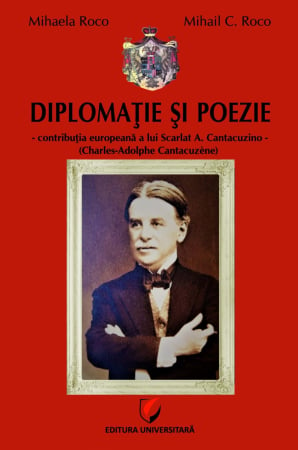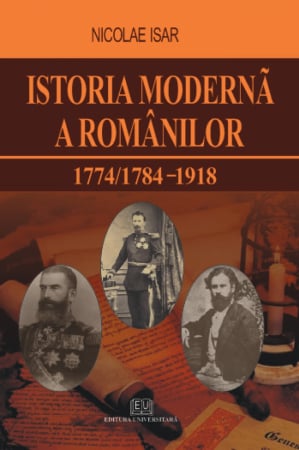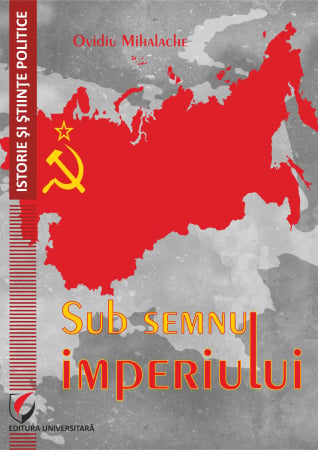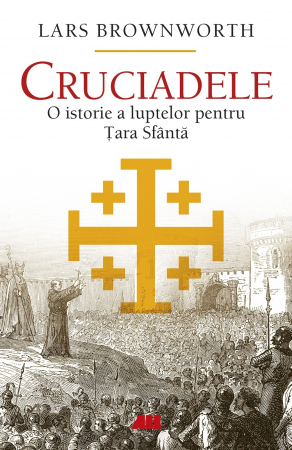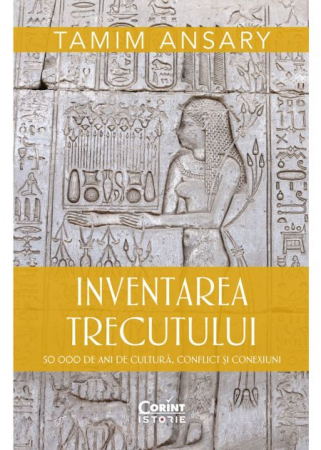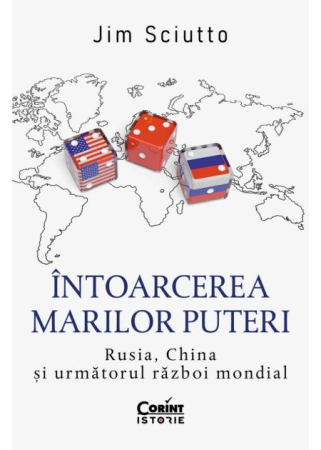ISBN: 978-606-28-0383-4
DOI: 10.5682/9786062803834
Publisher year: 2015
Edition: II, revizuita si adaugita
Pages: 272
Publisher: Editura Universitară
Author: Roland Schuller
- Description
- Download (1)
- Authors
- Content
- More details
- Reviews (0)
About this injustice and everything it would hide, I tried to analyze in the name and with respect for the truth, the historical reality of a short period (until 1870), when through abuse, Transylvania became a province of the young Hungarian national state.
To justify the claim to self-determination in Transylvania, some pseudo-historians claim that this historical province belonged to Hungary for a millennium.
This is how the millennium of Transylvania's "belonging" to Hungary - the affiliation of which the Hungarian historian A. Szilagy, in his work published in Budapest "Die Geschichte Siebenburgens" says: "well-known Hungarian historians have pointed out that Transylvania NEVER WELDED ”- represents 369 years of which over 300 as an autonomous voivodeship and principality (between 1200-1526, although the vassal of the Hungarian king, Transylvania had an obvious autonomy)
In the end, only 51 years remain (1867-1918) - which means 5% of the truth, from the much-trumpeted statement on all occasions in the light of untruth, about Hungary's historical rights over Transylvania.
It is unfortunate that these contemporary apologists ignore a series of indisputable truths, expressed in the constitutive features of the majority nation, of Transylvanian Romanians: community of language and culture, psychic and spiritual, territorial and economic community, solidarity in the struggle for social emancipation and national, as a result of the transformation of national consciousness into national consciousness.
We believe then that the work managed to highlight to a sufficient extent the harmful consequences of the dualistic pact between the Austrian and Hungarian political classes, when Transylvania was incorporated into Hungary, ignoring the will of the oldest population in these historical lands. The state policy promoted by the Hungarian political circles during the dualist period, was considered by the indictment against the injustices (Memorandum nn) as contrary to "the traditional political aspirations of the Romanian people and their interests of national existence, as opposed to and with the requirements of the constitutional organizations of modern states ”. Thus, the problem of the Romanians, as well as of other peoples in Austria-Hungary, became a European problem that had to be solved in 1918, when, on justice and morality, a "united and free Romania" was founded.
-
Dualismul austro-ungar
Download

ROLAND SCHULLER
Transylvanian Saxon settled in the 1960s in Bavaria.
He studied at the Institute of South and South-East European History and Studies in Munich, graduating with a MAGISTER ARTIUM.
Scientific collaborator in several study projects carried out at the Institute of Modern History in Munich.
Doctor in history, degree obtained in 1983 at Babes-Bolyai University in Cluj-Napoca.
He published studies at the Institute for South-East European Studies in Munich.
INTRODUCTION / 9
CHAPTER I
CRITICAL CONSIDERATIONS ON THE HISTORIOGRAPHY OF THE PROBLEM / 13
1. Concepts and points of view on the issue of nation and nationality in Austria-Hungary / 21
Note / 34
CHAPTER II
THE POLITICAL SITUATION OF EUROPE DURING THE END OF DUALISM / 51
1. The position of the great powers towards the solution of the Austro-Hungarian dualism / 53
Note / 63
CHAPTER III
SITUATION OF THE HABSBURG EMPIRE, HUNGARY AND TRANSYLVANIA IN THE PREMERATIVE YEARS OF DUALISM / 65
1. The policy of the Habsburg state towards the issue of nationalities at the beginning of the liberal government (1860-1861) / 65
2. The claims of the non-Hungarian peoples in the Transleitan part of the Habsburg monarchy after the publication of the Imperial Diploma in oct. 1860/69
a. The Alba-Iulia Regional Conference / 74
b. Imperial patent of February 1861 and other constitutional measures of the Habsburg superior authorities / 77
3. Romanian political actions in order to convene the Transylvanian Diet / 80
a. Elections for the Transylvanian Diet / 85
b. The works of the Sibiu Diet 1863-1864 / 88
4. Political initiatives of the Hungarian nobility to reach an agreement with the Habsburg Monarchy / 91
a. Change of orientation in the domestic policy of the Imperial Court / 91
5. The attitude of the Romanian Transylvanian ruling bed towards the Cluj Diet of 1865/94
a. The protest actions of the Transylvanian Romanians in the period preceding the diet in Cluj / 98
b. The works of the Diet from Cluj / 102
Note / 106
CHAPTER IV
THE DUALIST COMMITMENT OF 1867 / 111
1. The parliamentary activity of the Romanian deputies from Hungary and Banat in the Plague Diet until the proclamation of dualism / 111
a. The goals, organization and political tendencies of the national deputies / 111
b. Dietary session 1865-1867 / 115
c. New elections for the Hungarian Diet / 124
2. The political activity of the Transylvanian deputies in the Coronation Diet from Pest (1867) / 130
3. Austro-Hungarian dualism / 135
4. The pronunciation of Blaj / 139
5. The Romanian press - an instrument of the national and social interests of the Romanian people / 142
6. Conclusion of the works of the Coronation Diet (1868) / 154
Note / 164
CHAPTER V
LAW OF NATIONALITIES AND ELECTORAL LAW AND THEIR APPLICATION IN TRANSYLVANIA / 172
1. The national policy of the Pest Government after the establishment of dualism / 172
2. Law XLIV for the equal justification of nationalities / 178
a. Critical considerations on the law of nationalities / 182
3. Electoral Law (33/1874) / 185
Note / 192
CHAPTER VI
THE REACTION OF NATIONALITIES IN GENERAL AND ESPECIALLY OF ROMANIANS FROM TRANSYLVANIA TO DUALISM / 196
1. The fight against the Austro-Hungarian dualism / 196
2. Creation of the first national parties / 199
3. Elections for the Hungarian Diet and the political and parliamentary activity of the Romanian leaders (1869-1872) / 206
4. The position and reaction of the other nationalities in Transylvania towards dualism / 212
5. The reaction of the European public opinion regarding the struggle of the Romanians from the dualist monarchy, for freedom, justice and national unity / 215
Note / 226
CONCLUSION / 229
BIBLIOGRAPHY / 233
ANNEX / 253
The present paper aims to analyze the struggle of oppressed nations to thwart the dualistic compromise of 1867, concluded between the Austrian and Hungarian ruling classes, which required the incorporation of Transylvania into Hungary.
The theme of the paper is a complex issue, which aims at the objective reconstruction of the historical process over an entire decade - the seventh of the nineteenth century - seeking the integration of this period in all political and social phenomena in Transylvania, Austria-Hungary and from Europe.
Presenting the events prior to the conclusion of the so-called "Ausgleich", we start from the idea of correlating the Romanian national movement with the political history of the Habsburg Empire and the national and social liberation movement of other nationalities in the monarchy, after establishing the dualist system.
The period of the "liberal regime" (1860-1867) that preceded the conclusion of the dualist pact, was, through the scope and depth of Romanian political actions, a milestone in the modern history of Transylvania.
The political turmoil of the historical period treated in this paper, especially the satisfaction of the demands of the Pasoptist programs, the transition from absolutism to liberalism, the debates and decisions of the Sibiu Diet of 1863-1864, participation in the Senate work in Vienna, the establishment of Austro-Hungarian dualism ( 1867), the laws voted in the Hungarian Parliament and the attitude of the nationalities in general and of the Romanians in Transylvania in particular towards dualism, formed through their genesis, development and consequences, the object of extensive research. Having as historical sources archival documents, the press of the time, private correspondence and specialized literature, this paper aims at a synthesis of political events and especially those related to the struggle for the national liberation of Romanians. The policy of national oppression and denationalization of the non-Hungarian population, practiced by the ruling classes in Austria-Hungary, harmed both Romanians and other nationalities in Transylvania, Banat, Crisana, Maramures and Bucovina, which resulted in their growing hostility. compared to the dualist state.
The existence of common interests in defending the mother tongue and other national values against the policy of forced assimilation, practiced by government circles in Pest, triggered numerous protests by Romanian, Serbian, Saxon and Ruthenian political leaders. A remarkable contribution in these common actions had during this period the Romanian nation in Transylvania, which fought for its assertion as a distinct nation, for freedom and for the right to dispose of its own fate. The cause of national unity was demonstrated and defended through cultural and political actions initiated by Romanian intellectuals on both sides of the Carpathians. The depth and importance of these cultural and political ties were noted in the years following the Union of the Romanian Principalities and then after the conquest of Romania's state independence. If the issue of full national unity has been a continuing concern, the conquest of independence has become a fundamental issue. Following the struggle of the Romanian nation in Transylvania for the defense of freedom, culture, mother tongue and the tendencies of union with Romania, we intended to make a contribution to the historiography of the problem, on which yesterday's historians leaned and continue to dedicate themselves with passion and responsibility. and today's historians.
The objective historiography thus demonstrates the indisputable justice of the nations' struggle for territorial-administrative autonomy and the constitution in their own entities, in unitary and independent national states. In their struggle for maintaining the autonomy of the Romanian territories and preventing the achievement of the dualist compromise, no doubt the Romanian bourgeoisie, with all its limitations, played an important role, acting in this turbulent period in the sense of the objective requirements of historical development. The political actions carried out on various fronts by the Romanian intellectuals - the spokesperson of the entire Romanian nation at this time - bear a progressive and democratic imprint. The Romanian bourgeoisie was convinced that the support of all social categories and the close relations with the other oppressed nations, will ensure the realization of their desires. Consequently, it can be said that the common struggle in which Romanians, Hungarians, Germans and Serbs participated alike contributed to the deepening of mutual respect, to the understanding of the need to harmonize the protest actions. The approached theme is so complex in facts and ideas, that the historian hardly resists the temptation of the unstoppable dimensioning of the exposition. We are convinced that such a comprehensive issue could not be exhausted in the research undertaken here, and subsequent works will elucidate new aspects of such a turbulent historical stage in the life of the Romanian people.

6359.png)
![Austro-Hungarian Dualism - ROLAND SCHULLER [1] Austro-Hungarian Dualism - ROLAND SCHULLER [1]](https://gomagcdn.ro/domains/editurauniversitara.ro/files/product/large/dualismul-austro-ungar-653-252263.jpg)


